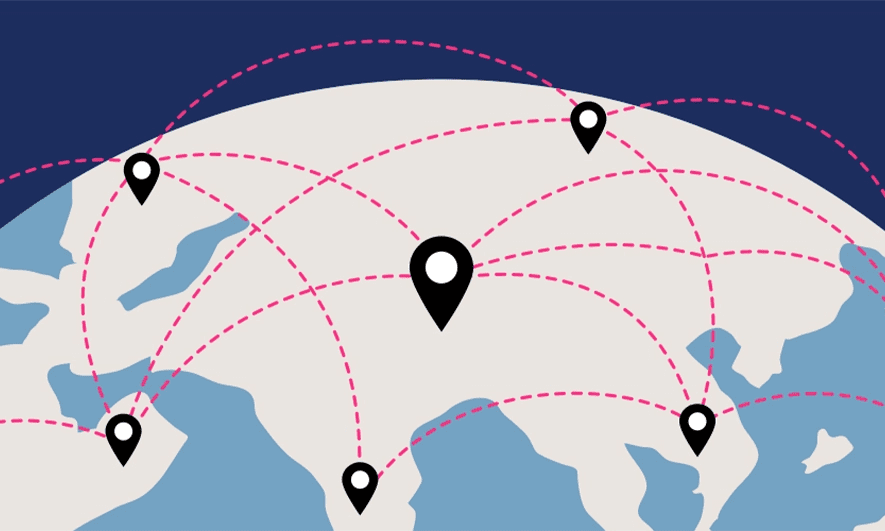Imagine business is running smoothly and sales are strong, but suddenly a cruel turn of events occurs. An essential supplier says they can’t fulfill your orders for the next three months due to storm damage at their facilities. Or perhaps a neighboring business experiences a fire that compromises the integrity of the building you share, so you must find and pay for a temporary location.
How will you cover these unforeseen expenses and lost sales? This is where business interruption insurance comes into play.
Business interruption coverage is included in most business owner’s insurance policies (BOPs), and the premiums are tax-deductible. In the event of lost income or expenses due to a covered loss such as a natural disaster or theft, coverage kicks in on the first day of the qualifying event. It extends until the final day of the business interruption period—usually once physical repairs are finished and you’re able to resume business as usual.
How does business interruption insurance work? Read on to learn the ins and outs of business interruption insurance, including why it’s a crucial ingredient in good business management.
What Is Business Interruption Insurance?
Also known as business income insurance, business interruption insurance helps you replace lost income resulting from a covered loss such as theft or from a natural disaster that causes property damage from wind or fire. It can also help cover your regular bills such as rent or mortgage payments, payroll and wages, and payments toward taxes and loans.
In some cases, business owners who experience civil authority shutdowns due to local maintenance can also qualify for lost income coverage during the period in which they were ordered to close.
Who Needs Business Interruption Insurance?
Businesses with property, services or products that are susceptible to wind damage, fire damage or theft can benefit from business interruption insurance. Your small business may need this type of protection if it relies on any of the following:
- Property from which to work, providing services, store inventory
- Tools or equipment to provide services to your customers
- Physical hardware or digital property such as computers, servers and cloud storage
How Much Business Interruption Insurance Do I Need?
Small business owners must ultimately determine how much coverage they need. Take time to determine the right amount for your business. That way, you won’t regret purchasing insufficient coverage when it’s time to file an insurance claim.
When selecting the amount of coverage for your policy, ensure you would have enough to cover the costs you’re likely to incur during a period of reduced or nonexistent sales, as well as your lost income. You can calculate business income per year by subtracting your annual expenses from your total annual revenue. If you have multiple years of data, find the average. Then consider your risk and the longest period you could potentially experience lost revenue. If your business is seasonal, you may want to purchase slightly higher lost-income coverage in case disaster strikes during your busy period.
What Does Business Interruption Cover?
Business interruption insurance can help pay for the following when a qualifying event occurs:
- Mortgage or rent payments
- Loan payments
- Utility bills
- Taxes
- Payroll and wages
- Advertising costs
- Relocation expenses
- Lost income
If you anticipate extra expenses or the potential for extended interruptions due to a shaky supply chain, you may want to consider adding extensions to you policy or seeking an endorsement that can expand your coverage when filing your claim.
Does Business Interruption Insurance Cover Pandemics?
The short answer: No. Business interruption insurance covers losses from direct physical damages. Since the SARS outbreak in 2003, most insurers have added policy exclusions for losses from communicable diseases and viruses.
How Much Does Business Interruption Insurance Cost?

The cost of business interruption insurance depends on several factors, including your:
- Company size
- Industry
- Location
- Revenue
- Claims history
- The coverage level you choose
Included as part of a Business Owner’s Policy, the cost of business interruption insurance can range from several hundred to several thousand dollars annually.
Frequently Asked Questions
Are Business Interruption Insurance Proceeds Taxable?
Business interruption insurance premiums are tax deductible, but the proceeds you receive from a claim are considered taxable income. Make sure to report insurance payouts as part of your income when you pay your business taxes.
Does Business Interruption Insurance Cover Rent?
Yes, business interruption insurance covers your business’s rent payments for your regular location. In some cases, coverage will also pay extra expenses incurred for rent at a temporary location while necessary repairs are made.
How Long Does Business Interruption Insurance Last?
Business interruption insurance typically lasts for up to 6, 12, 18 or 24 months (depending on what you selected for coverage) while your business is repaired. In certain situations, some business owners may get an endorsement to extend their coverage.
How Do I Calculate Gross Profit for Business Interruption Insurance?
Calculating your gross profit can help determine your coverage needs. To determine your business’s gross profit, calculate your net sales (total income generated by sales, minus discounts and deductions from returned merchandise). Then subtract the cost of goods sold (total expenses related to producing goods, including materials cost and labor cost).
When Does Business Interruption Insurance Start?
Coverage typically starts after a 0, 24, 48 or 72-hour waiting period (depending on what you selected for coverage) following the first day of a covered event or disaster.
Protect Your Business With Business Interruption Insurance Today
If you have questions about business interruption insurance or you’re seeking a quote for a BOP that includes this coverage, contact The Hartford today.






Regarding Business Interruption insurance covering mortgage payments and loans, I would recommend clarifying this to specify the interest portion only. Since Business Interruption deals only with income statement or profit & loss statement items, the principal portion of mortgage or loans payments is not part of the Business Interruption calculation. The principal is collateralized by the asset acquired with the mortgage or loan (real property, equipment, or even cash). The principal portion services to reduce a liability, which is a balance sheet item (liability). The interest is recorded as an expense on the income statement or profit & loss statement and, thus, would be part of the Business Interruption equation.